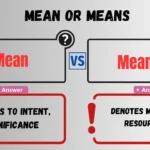In everyday conversations, you might find yourself using phrases like “All is well” or “All is good” to convey a sense of things being satisfactory. These phrases seem interchangeable, but are they really?
Let’s dive deep into the meanings, grammatical correctness, and appropriate contexts for both expressions.
Understanding the Meanings
“All Is Well”
The phrase “all is well” carries a sense of assurance and completeness. When someone says “all is well,” they imply that everything is functioning properly or as expected. It conveys a reassurance that all issues are resolved or that no problems are present.
Origins and Usage:
- Origins: The phrase “all is well” dates back to older English literature and religious texts. It’s often found in classical literature and traditional expressions, reflecting a more formal tone.
- Usage Examples:
- In Literature: “All is well that ends well” is a famous phrase from Shakespeare’s play, indicating that if the outcome is positive, the journey was worthwhile.
- In Everyday Use: “Don’t worry about the project; all is well.”
“All Is Good”
The phrase “all is good” is a more modern and casual way to express that everything is satisfactory. It suggests that things are not just okay, but actually positive or desirable.
Origins and Usage:
- Origins: This phrase likely evolved from informal speech and has become popular in contemporary vernacular. It’s often used in relaxed, everyday conversations.
- Usage Examples:
- In Casual Conversations: “The meeting went smoothly, so all is good.”
- In Social Media: “Just checking in—hope all is good with you!”
Grammatical Analysis
Correctness in Standard English
“All Is Well”:
- Grammatical Rules: The phrase “all is well” follows traditional English grammar rules. It uses the present simple tense and the adjective “well” to describe the state of being. This construction is considered formal and grammatically correct.
“All Is Good”:
- Grammatical Rules: While “all is good” is less formal, it is still grammatically acceptable. The phrase uses the adjective “good” to describe the state of affairs. This construction is often seen in spoken English and informal writing.
Comparative Analysis
PhraseToneFormalityContextAll Is WellReassuringFormalProfessional settings, formal writingAll Is GoodPositiveInformalCasual conversations, social media
- Nuance and Formality: “All is well” tends to be used in more formal contexts, while “all is good” is common in casual interactions. The choice between them often depends on the level of formality and the context in which they are used.
Usage in Different Contexts
Formal Contexts
Professional Settings:
- Emails and Reports: Use “all is well” in formal communications, such as business emails or official reports. For example, “I have reviewed the financial statements, and all is well.”
- Public Speaking: In formal speeches or presentations, “all is well” maintains a professional tone.
Examples:
- “After addressing the concerns raised, we can confirm that all is well with the project.”
Informal Contexts
Everyday Conversations:
- Casual Chats: “All is good” fits better in informal settings. Use it in conversations with friends or family. For instance, “The dinner was great; all is good!”
- Social Media: “All is good” is also suitable for posts or messages on platforms like Facebook or Twitter.
Examples:
- “Just got back from vacation—everything is good!”
Regional and Cultural Variations
American vs. British English
American English:
- Preference: “All is good” is more common in American informal speech and writing.
British English:
- Preference: “All is well” is often preferred in British English, particularly in formal contexts.
Comparison Table:
RegionPreferred PhraseAmerican EnglishAll is goodBritish EnglishAll is well
Cultural Preferences
Cultural Impact:
- Varied Usage: Different cultures may have preferences based on formality and context. For instance, in business cultures that value formality, “all is well” might be more appropriate.
Examples:
- In a German business setting, “all is well” may be preferred over “all is good” due to the formality of the language.
Idiomatic Expressions and Alternatives
Similar Expressions
Other Phrases with Similar Meanings:
- “Everything is fine”: A straightforward alternative that fits both formal and informal contexts.
- “All is okay”: Similar to “all is good,” often used in casual conversation.
Idiomatic Use
Impact on Language Choice:
- Using idiomatic expressions can add flavor and clarity to communication. For example, saying “everything is peachy” is more informal and playful compared to “all is good.”
Examples:
- “After the fix, everything is peachy!”
Conclusion
In summary, both “all is well” and “all is good” serve to convey that everything is satisfactory, but they do so in different ways. “All is well” tends to be more formal and reassuring, while “all is good” is more casual and positive.
The choice between these phrases depends on the context, formality, and cultural preferences.
When in doubt, consider your audience and the setting to choose the most appropriate phrase. Feel free to share your experiences or preferences in the comments!

Amelia Harris, a passionate educator, simplifies English grammar and vocabulary for learners of all levels. With her engaging style, mastering English has never been easie




